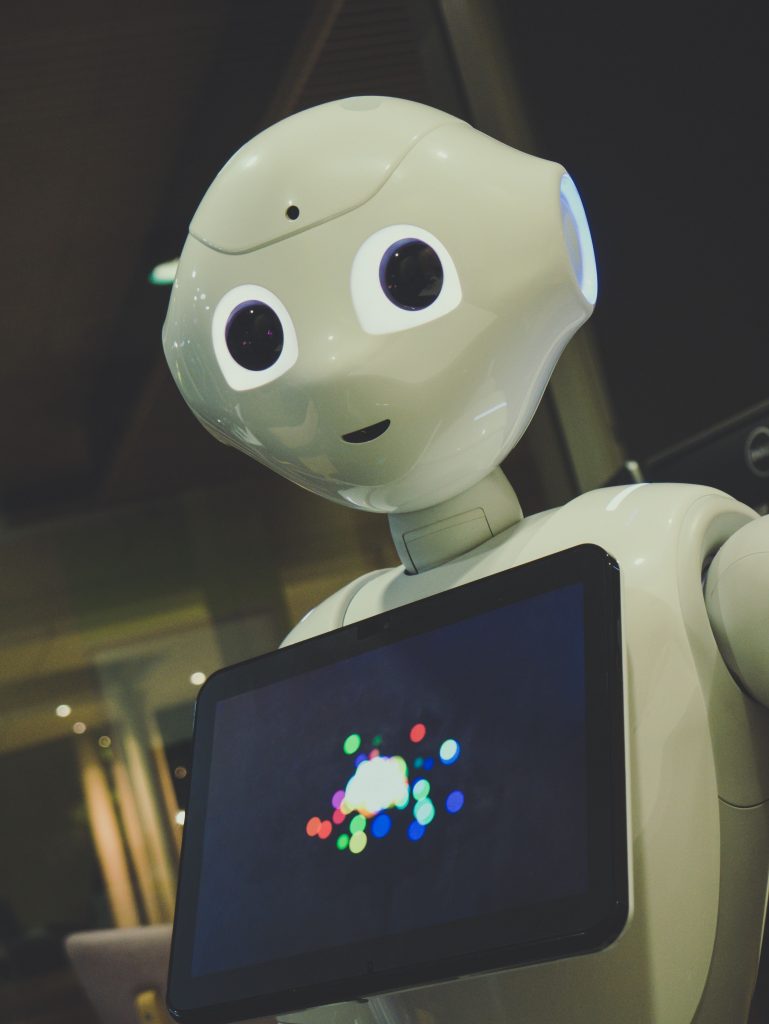
Loving Machines?
What does it mean to ‘love’ robots? Should we love them? Can they love us?
A new wave of social robots are being designed to enter our homes and hospitals, to provide companionship for us, and to deliver care to us. As we brace ourselves for different types of relationships with these robots, this free event explores some of the science and philosophy behind our perceptions of robots. Some of these perceptions include our hopes for a future alongside robots; on the other hand, they also include fears about a replacement of humans by robots and a more general sense of dehumanisation as a result. As well as considering what reasons we might have for these attitudes, the event also reflects on our broader ideas about relationships and how love has been used to characterise them, as a way of asking whether any type of love is possible beyond humans.
Love, of course, is a big term. It has a lot of significance in marriages, families, and friendship. In religious terms it represents an important way of characterising the value of creation in relation to God, its creator. Can we extend love to our own robotic creations, and can they love us at all? This event responds to these questions by focusing on two robots and two different aspects of love. First, MiRo is a pet-like robot designed to provide companionship in the home. How we interact with MiRo and other pets can reveal ideas about love as a form of attachment. Second, Pepper is a humanoid (human-shaped) robot that is designed to provide a service for humans in a range of settings from shops to hospitals. How we trust Pepper impacts its ability to provide care for us. In both of these cases, ‘love’ can be thought about through the types of relationships we build – and those that we don’t build – with robots.
The event will feature a pilot screening of some short films about MiRo and Pepper that explore these questions. Experts will also lead a discussion about how research is shaping our future with robots by addressing questions about humans, robots, and the relationships between the two. This work is the product of ‘Living with and Loving Machines’, a research project at the Lincoln Theological Institute (University of Manchester), and it is co-funded by Scientists in Congregations and Creative Manchester.
Internal Partner(s):
Creative Manchester, Lincoln Theological Institute, Media Services
External Partner(s):
Manchester Cathedral, Scientists in Congregations (Templeton Foundation)
Funding source(s):
Scientists in Congregations, Creative Manchester
Associated link(s):
http://lincolntheologicalinstitute.com/living-with-loving-machines/
Project duration:
2019 (postdoctoral research underpinning project was 2016-19)
Project lead(s):
Dr Scott Midson

0 Comments